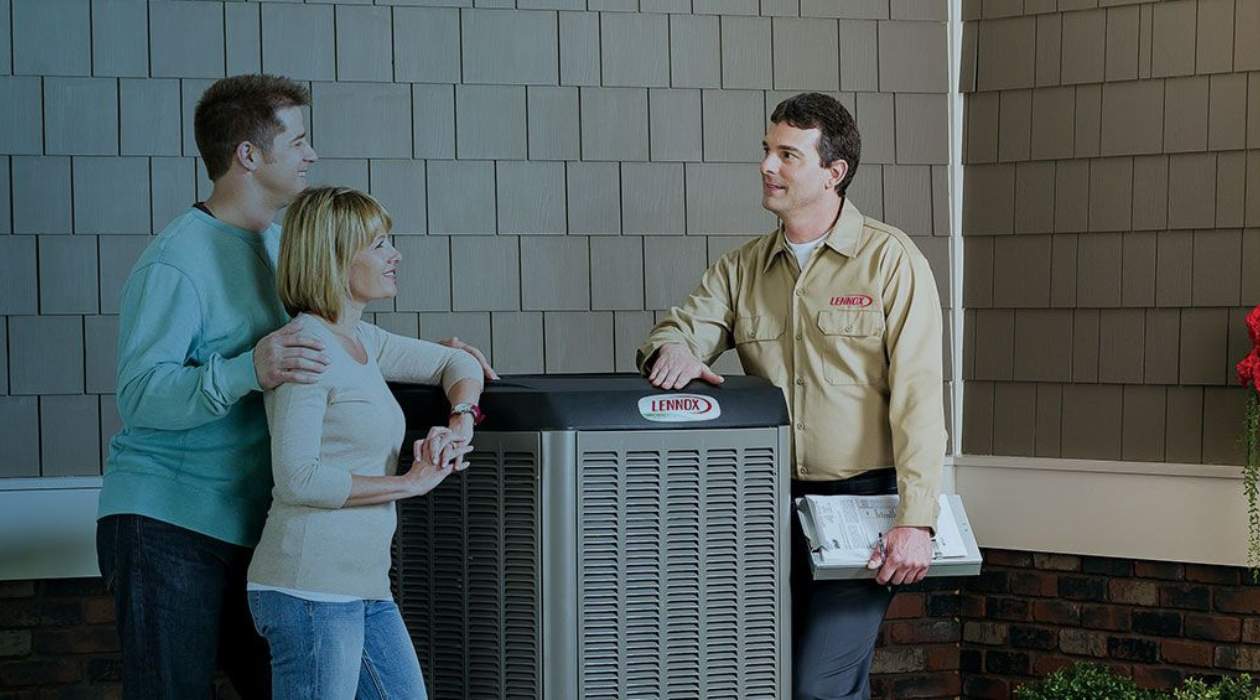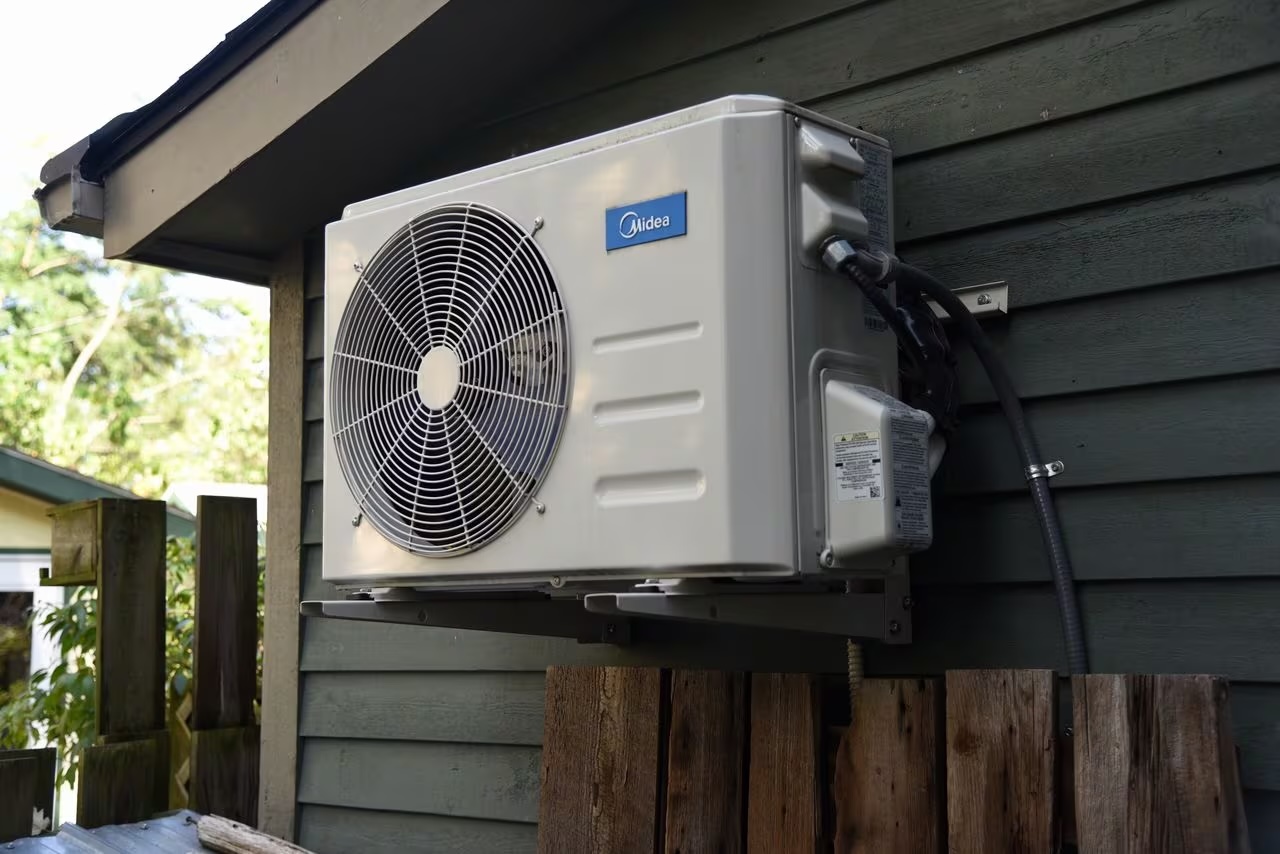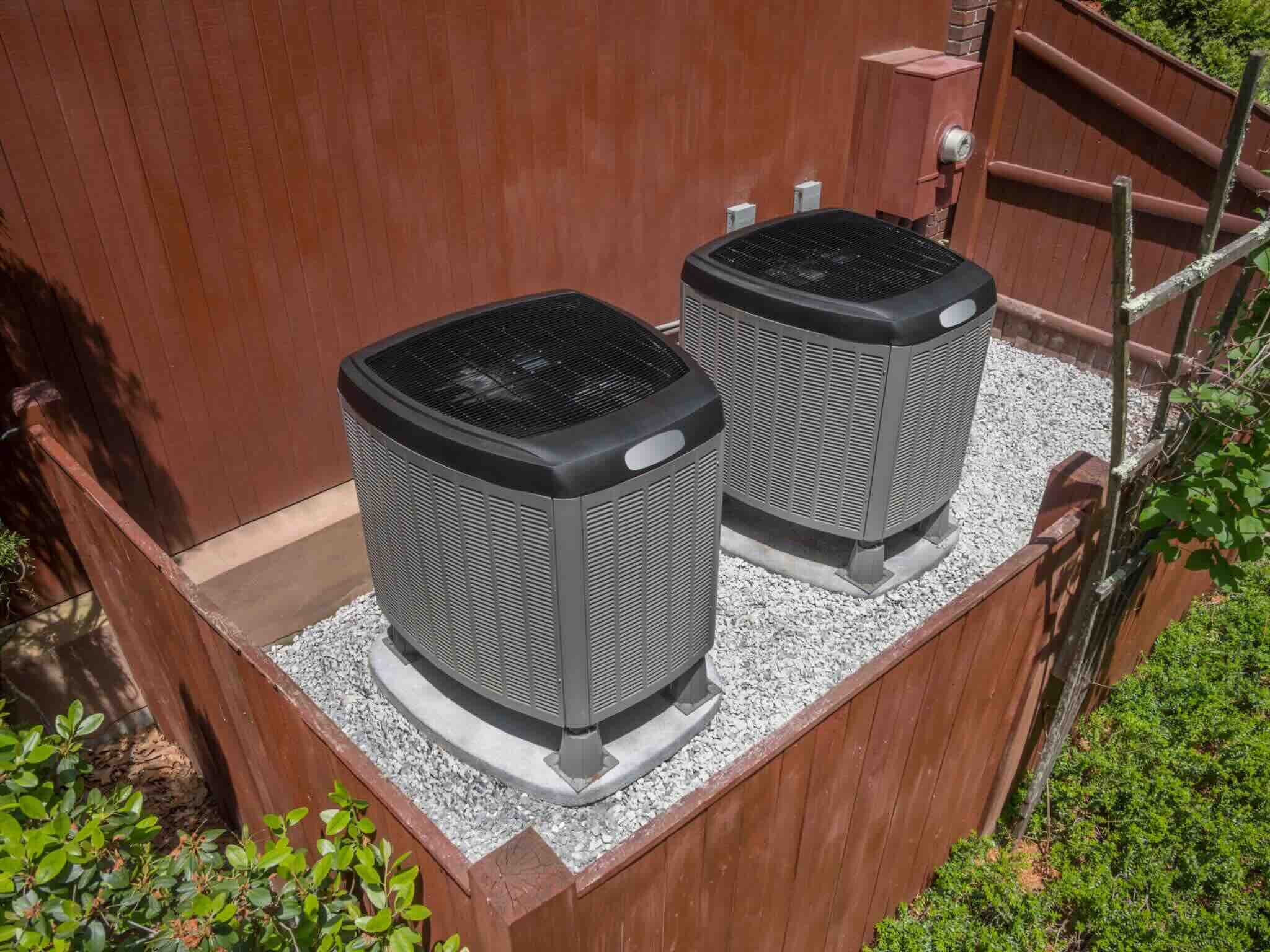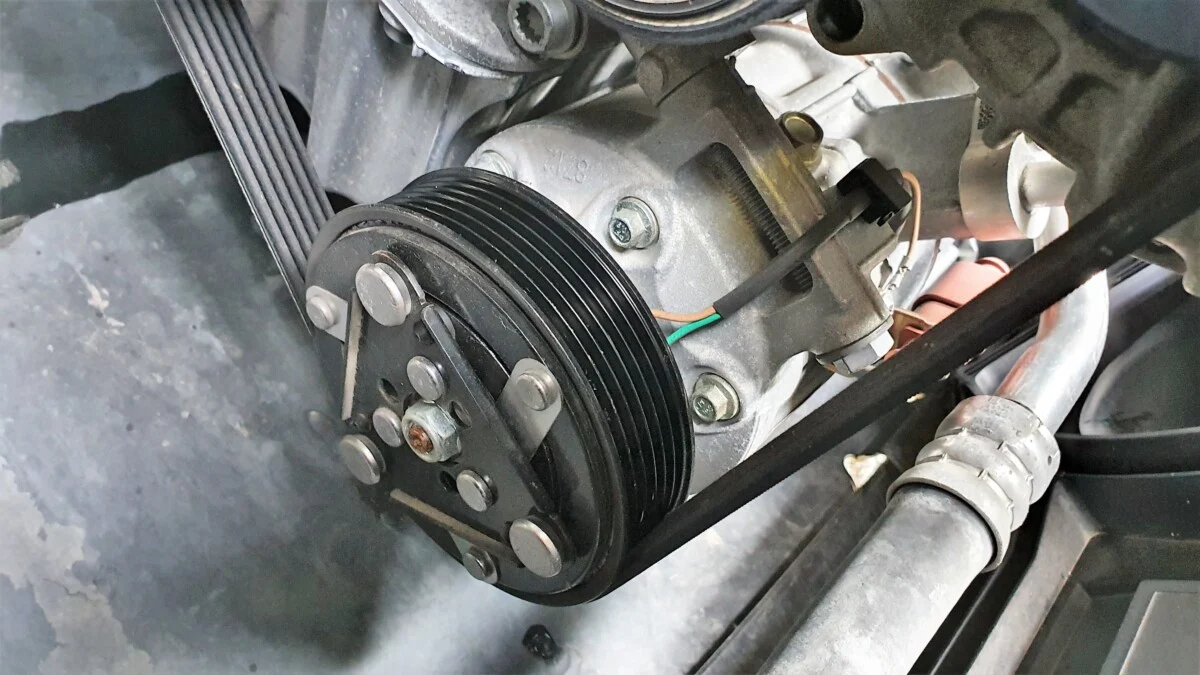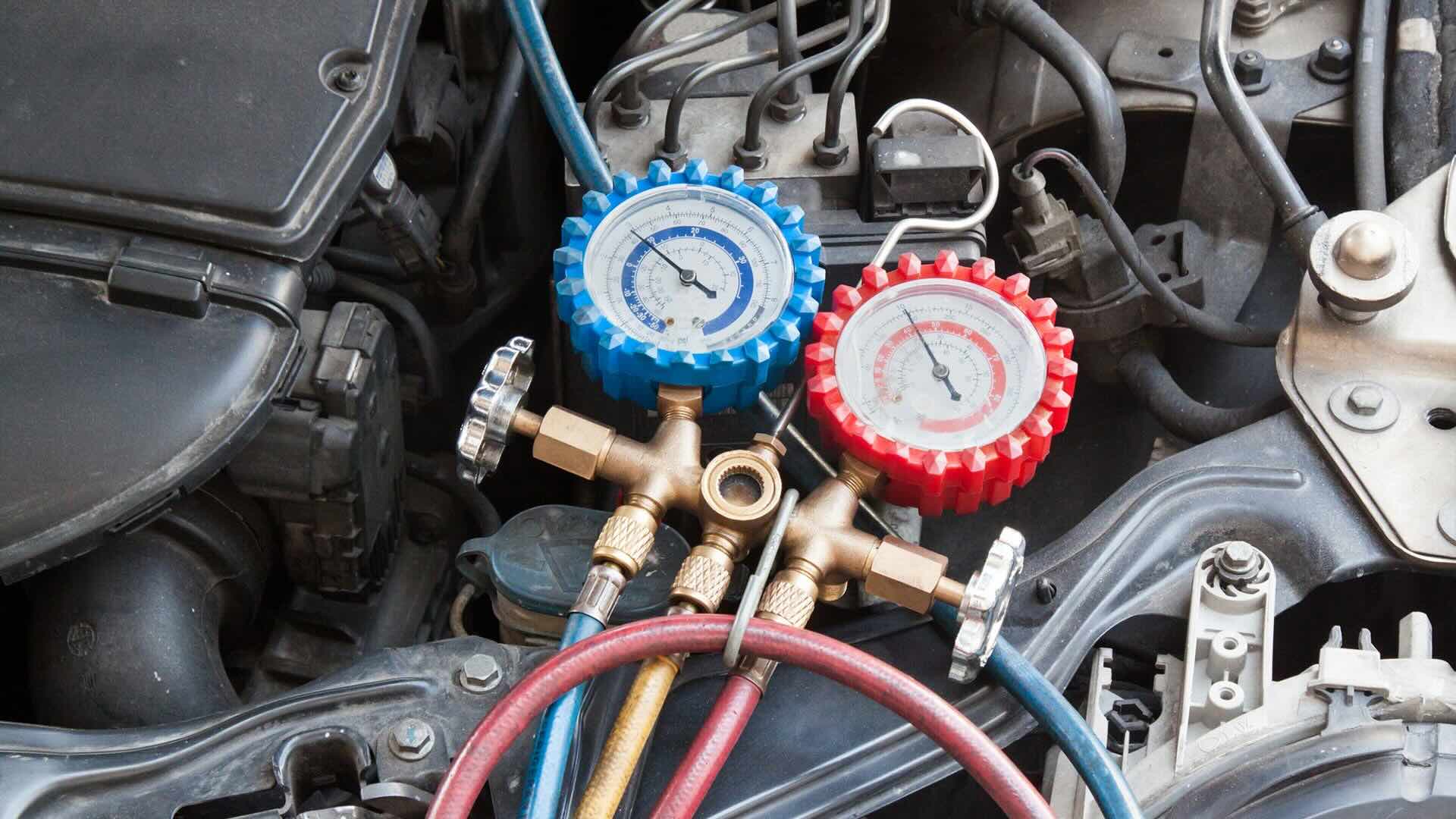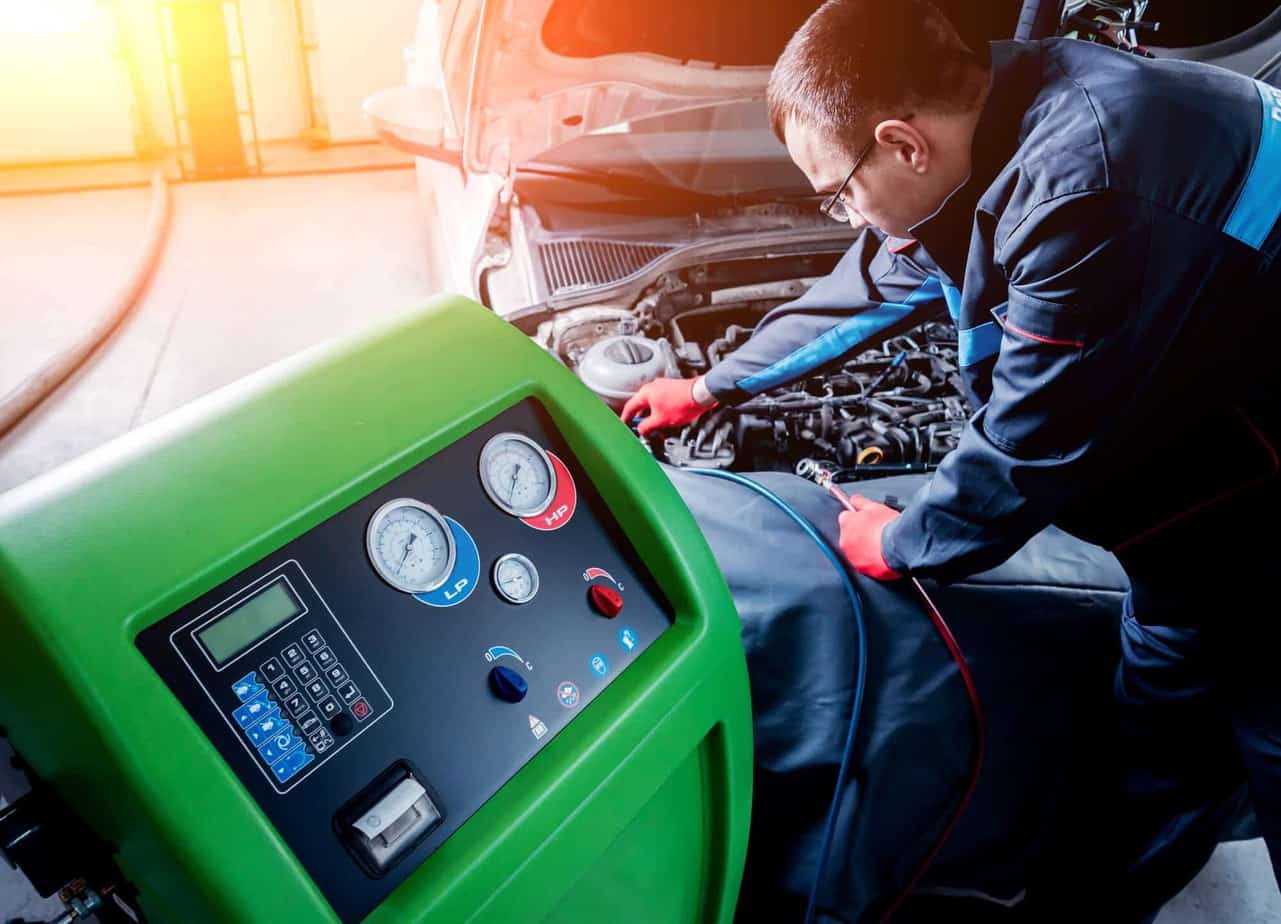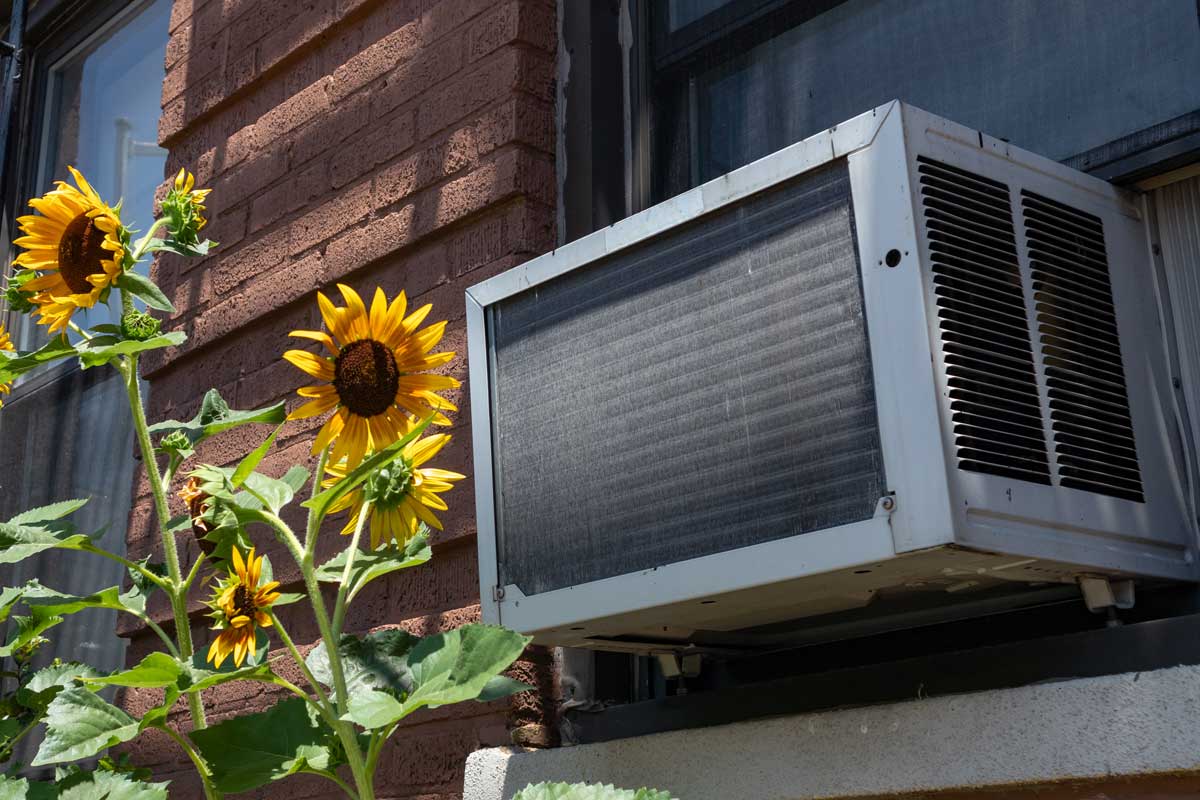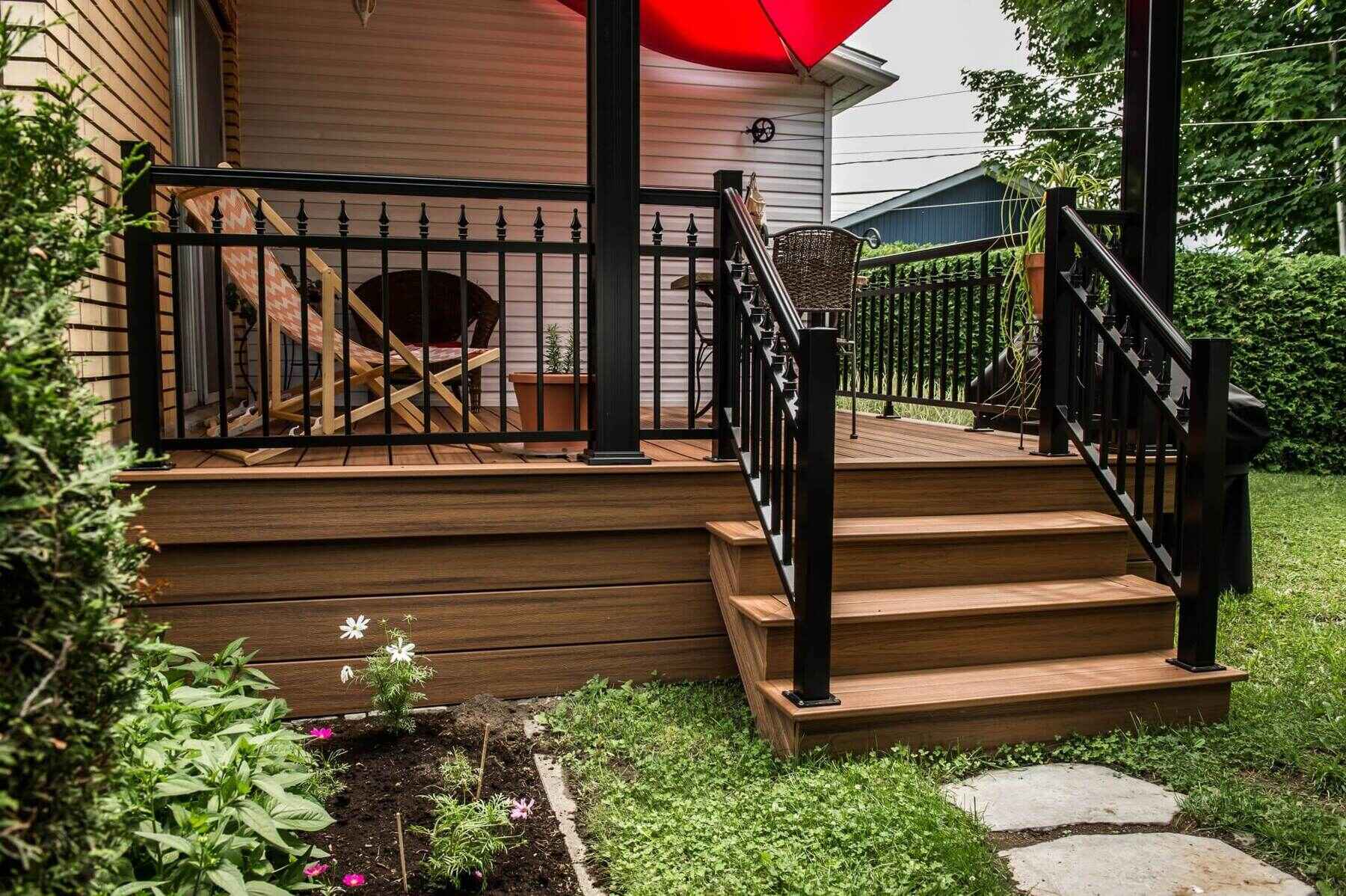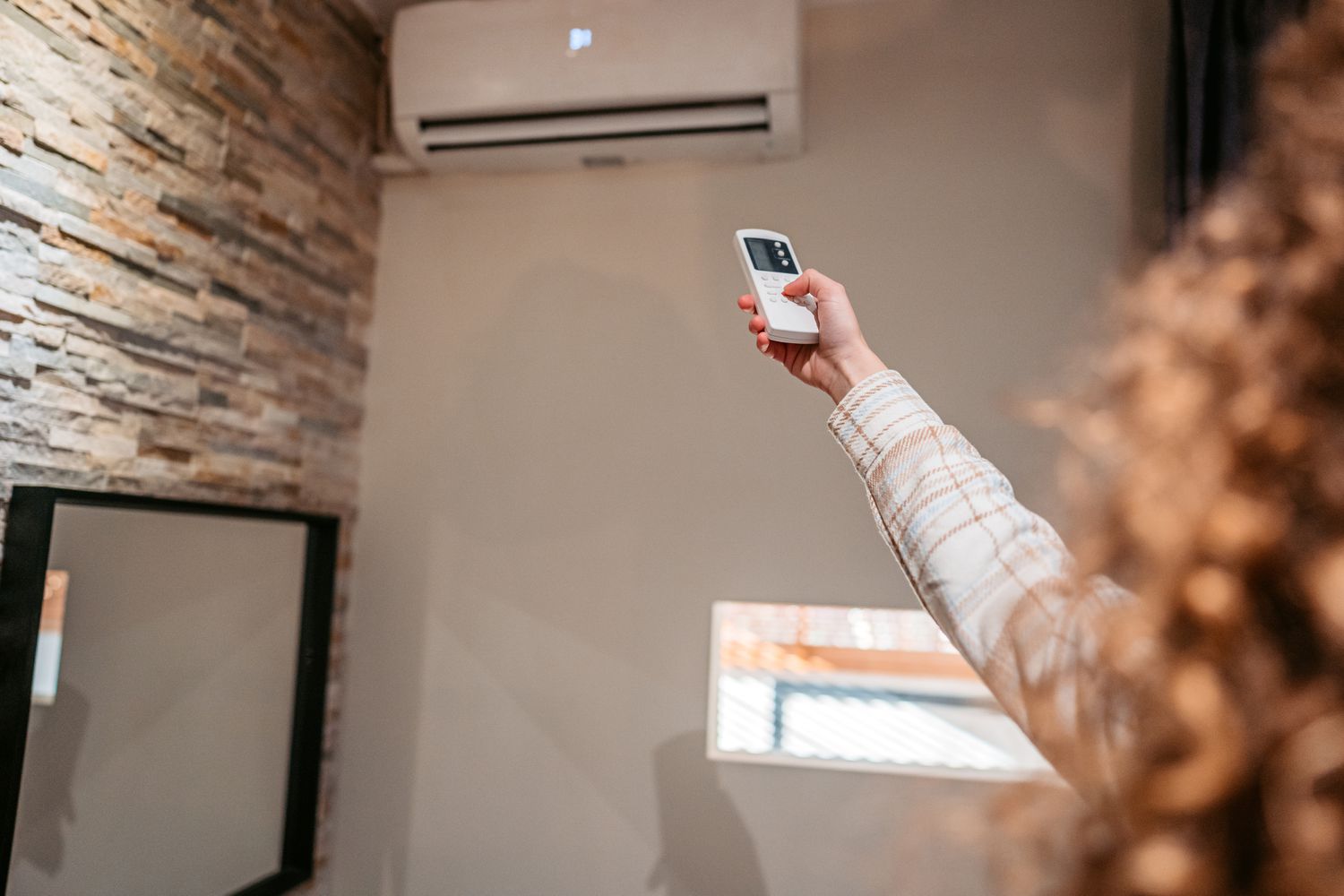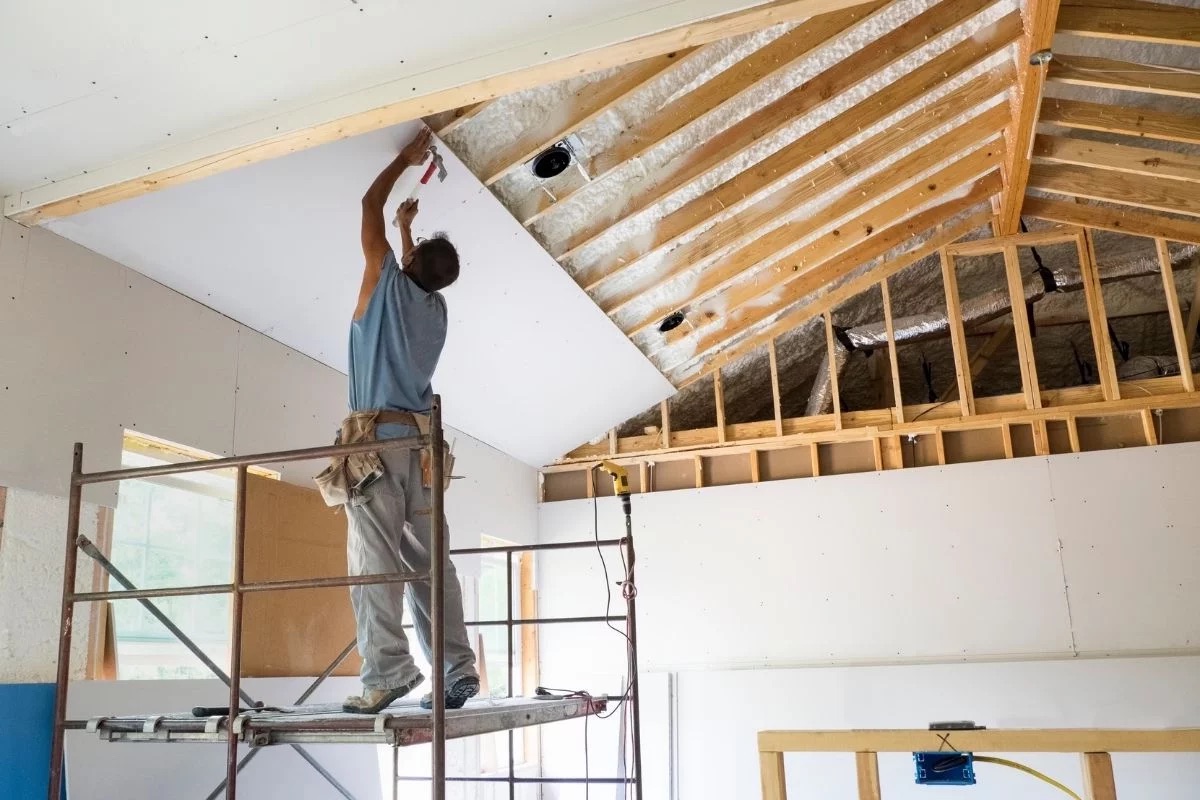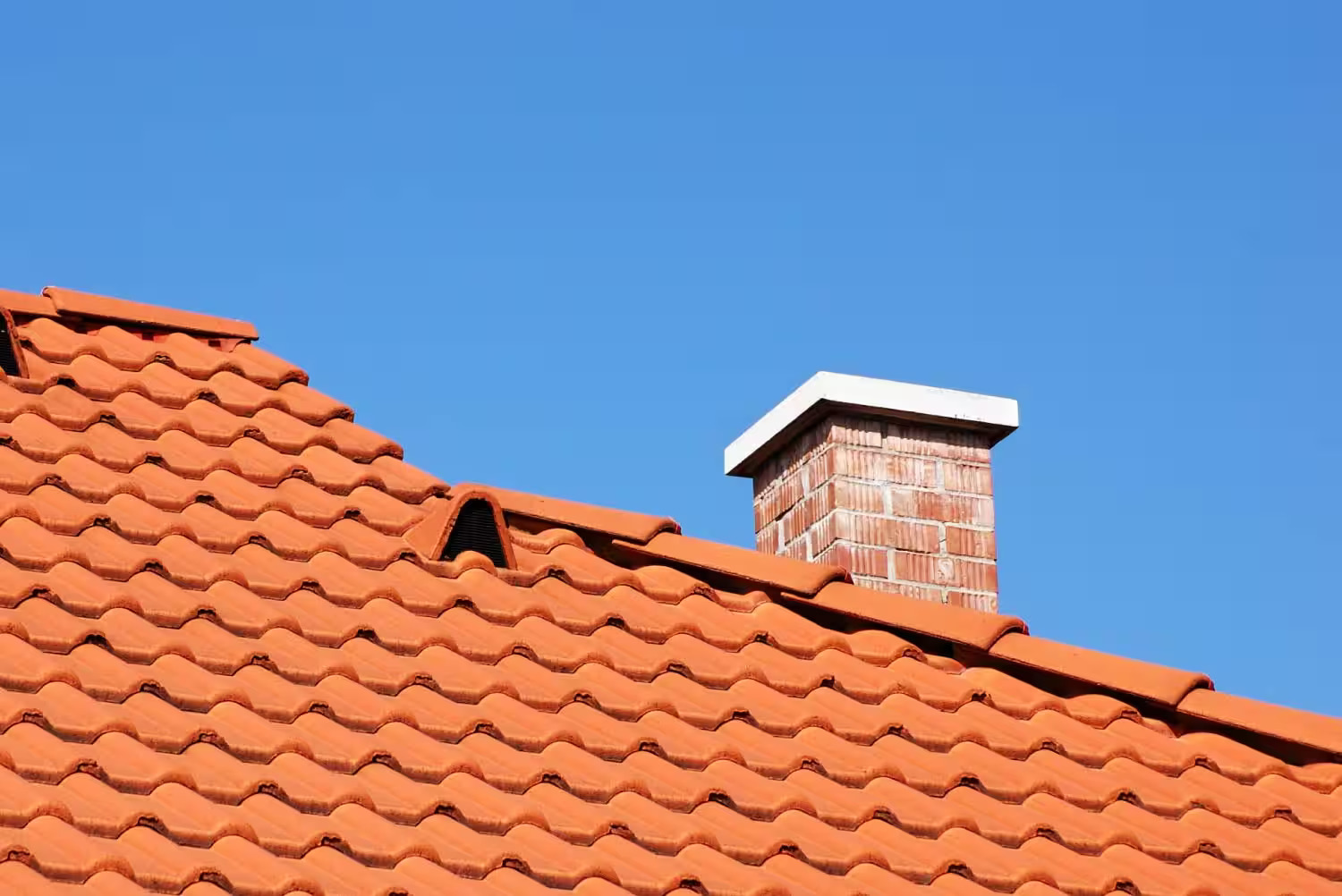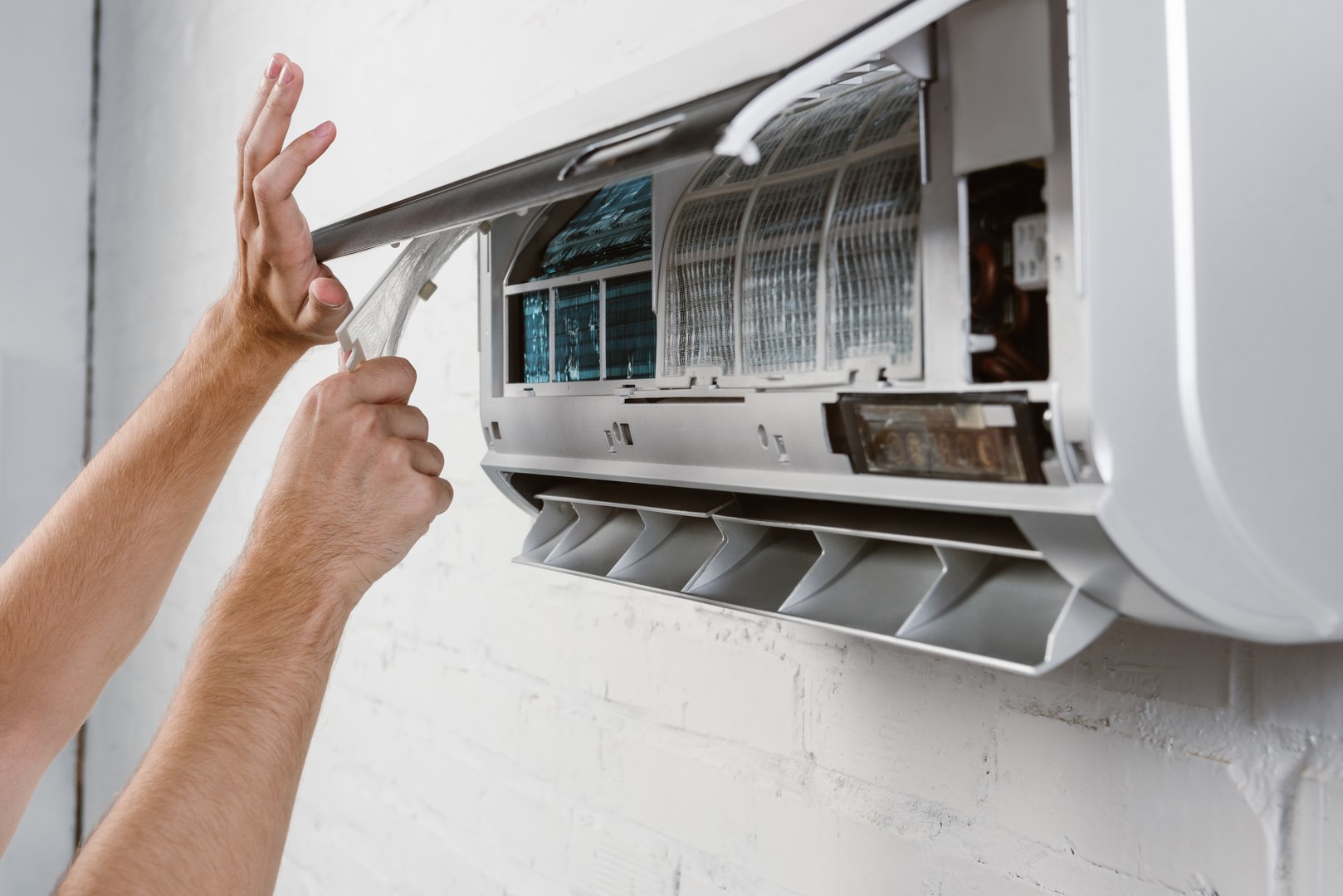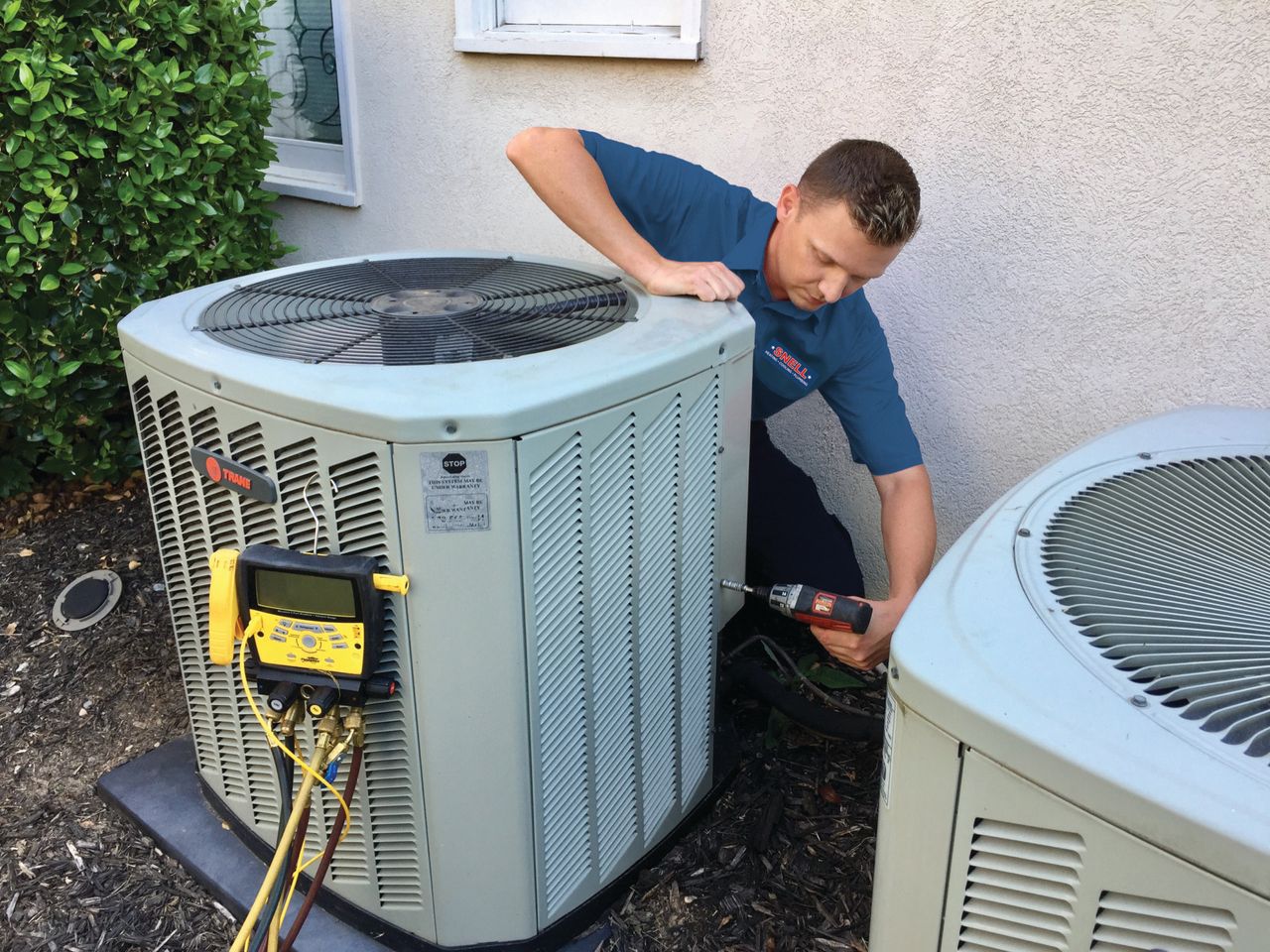Home>Home Maintenance>How Much Does It Cost To Replace An Air Conditioner
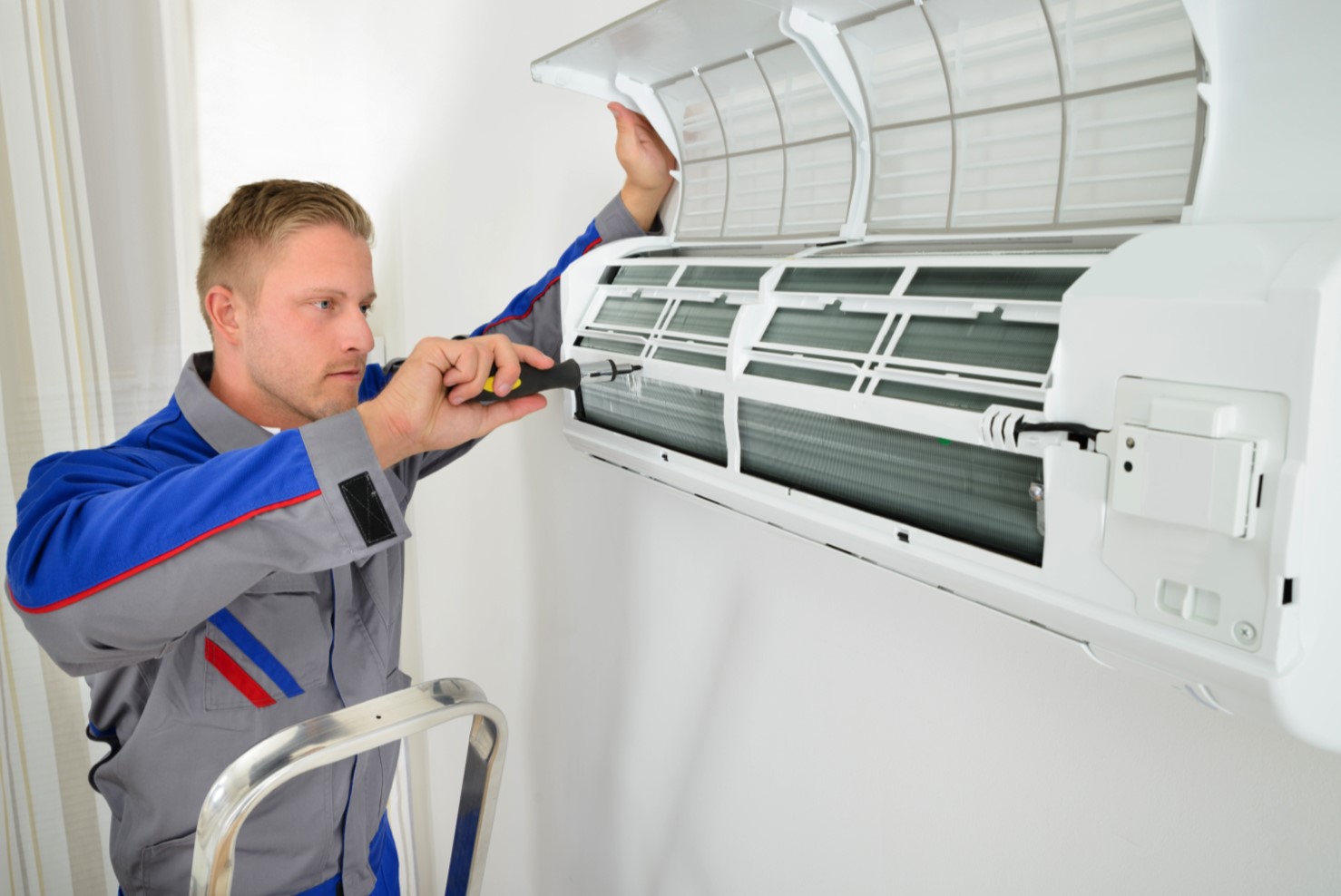

Home Maintenance
How Much Does It Cost To Replace An Air Conditioner
Modified: March 7, 2024
Discover the average cost to replace an air conditioner and find out how to budget for this essential home maintenance. Get expert tips and estimates from trusted professionals.
(Many of the links in this article redirect to a specific reviewed product. Your purchase of these products through affiliate links helps to generate commission for Storables.com, at no extra cost. Learn more)
Introduction
Welcome to the world of home maintenance! As a homeowner, it’s important to ensure that your property is in top shape, especially when it comes to essential systems like your air conditioner. Understanding the cost of replacing an air conditioner is crucial for budgeting and making informed decisions.
When it’s time to replace your air conditioner, it’s natural to wonder about the expenses involved. The cost can vary depending on several factors, such as the type of air conditioner you choose, the size of your home, and any additional features or upgrades you opt for.
In this article, we’ll explore the factors that affect the cost of replacing an air conditioner, the different types of air conditioners available, and the breakdown of costs you can expect. We’ll also discuss additional costs to consider and provide some tips for saving money on the replacement process. Lastly, we’ll help you decide whether it’s best to hire a professional or attempt a DIY air conditioner replacement.
So, let’s dive into the fascinating world of air conditioner replacement costs and discover the best options for your home and budget!
Key Takeaways:
- Replacing an air conditioner can cost between $2,500 to $7,500 or more, depending on factors like size, type, and additional features. Energy-efficient models may have a higher upfront cost but can lead to long-term savings on energy bills.
- When considering air conditioner replacement, it’s important to factor in additional costs such as peripherals, ductwork modifications, and maintenance. Research and compare options, prioritize energy efficiency, and explore financing or rebate options to save money.
Read more: How Much Does A Carrier Air Conditioner Cost
Factors Affecting the Cost of Air Conditioner Replacement
Replacing an air conditioner is a significant investment, and the total cost can vary depending on several key factors. Understanding these factors will give you a clearer idea of what to expect in terms of expenses. Here are the main factors that can affect the cost of air conditioner replacement:
- Size of the Unit: The size of the air conditioner unit you need will depend on the square footage of your home. Larger homes require bigger units with higher capacities, which can increase the cost.
- Type of Air Conditioner: There are several types of air conditioners available, including central air conditioning systems, ductless mini-split systems, and window units. Each type has its own cost implications, with central air conditioning systems generally being more expensive due to their larger size and complexity.
- Energy Efficiency: Energy-efficient air conditioners are designed to consume less energy while providing the same level of cooling. These units may have a higher upfront cost compared to less efficient models, but they can result in significant long-term savings on energy bills.
- Additional Features: Certain features, such as programmable thermostats, air purifiers, and humidity control, can add to the cost of the air conditioner. While these features may offer added convenience and comfort, they are not always necessary and can be an additional expense.
- Installation Complexity: The complexity of the installation process can impact the overall cost. If your home requires additional ductwork or modifications to accommodate the new unit, it may increase the installation expenses.
- Local Climate: The climate in your area can affect the recommended specifications for your air conditioning system. If you live in a region with extreme temperatures, your system may require a higher capacity unit, which can impact the cost.
- Warranty and Maintenance: Some air conditioners come with extended warranties or maintenance contracts, which can affect the overall cost. While these additional services may provide peace of mind, they can also increase the upfront expenses.
Keep in mind that these factors can vary depending on your specific circumstances and requirements. Consulting with a qualified HVAC professional can help determine the best options for your home and budget.
Types of Air Conditioners and Their Costs
When it comes to air conditioning, there are several types of units to choose from, each with its own benefits and costs. Understanding the different types will help you make an informed decision while considering your budget. Here are the most common types of air conditioners and their associated costs:
- Central Air Conditioning Systems: Central air conditioning systems are the most common type found in residential homes. They consist of a central unit that cools the air and distributes it through ductwork to different rooms. The cost of a central air conditioning system can range from $2,500 to $7,500 or more, depending on the size, efficiency, and additional features.
- Ductless Mini-Split Systems: Ductless mini-split systems are ideal for homes without ductwork or for those looking to zone their cooling. These systems consist of an outdoor unit connected to one or more indoor units, allowing for room-by-room temperature control. The cost of a ductless mini-split system typically ranges from $1,500 to $5,000 or more, depending on the number of indoor units and their capacities.
- Window Air Conditioners: Window air conditioners are self-contained units that are installed directly in a window. They are a cost-effective option for cooling individual rooms or small spaces. The cost of a window air conditioner can vary depending on the cooling capacity and features but generally ranges from $150 to $500.
- Portable Air Conditioners: Portable air conditioners offer flexibility as they can be moved from room to room. These units require an exhaust hose to vent hot air outside. The cost of a portable air conditioner can range from $200 to $800, depending on the cooling capacity and additional features.
- Hybrid Air Conditioners: Hybrid air conditioners combine an electric air conditioner with a gas furnace, offering efficient cooling and heating capabilities. These units are generally more expensive, with costs ranging from $3,000 to $8,000 or more, depending on the size and features.
It’s important to note that these cost ranges are estimates and can vary depending on factors such as the brand, energy efficiency rating, and specific installation requirements. Consulting with an HVAC professional will provide a more accurate cost assessment for your specific needs.
Cost Breakdown of Air Conditioner Replacement
When planning for an air conditioner replacement, it’s crucial to understand the breakdown of costs associated with the project. While the total cost will depend on various factors, here’s a general breakdown of the expenses you can expect:
- Cost of the Unit: The cost of the air conditioning unit itself will be a significant portion of the total expense. As mentioned earlier, the price will depend on the type, size, and features of the unit you choose. Make sure to consider energy efficiency ratings, warranties, and the overall quality of the unit when making this investment.
- Installation Costs: The installation of the new air conditioner will involve labor costs. This includes removing the old unit (if applicable), installing the new unit, making any necessary modifications to the ductwork, electrical work, and proper testing to ensure the system is functioning correctly. The complexity of the installation and the amount of work required can affect the overall installation cost.
- Other Materials and Equipment: Depending on the type of air conditioner and the specific installation requirements, additional materials and equipment may be needed. This can include items such as refrigerant, ductwork, insulation, thermostats, and other accessories. These costs should be considered when calculating the overall budget.
- Permits and Inspections: In some areas, obtaining permits and scheduling inspections may be necessary for air conditioner replacement. The cost of permits and inspections can vary depending on location and the specific requirements of your local municipality.
- Disposal and Removal: If you are replacing an existing air conditioner, there may be costs associated with properly disposing of the old unit. This can include fees for recycling or disposal services, especially for units that contain refrigerants.
It’s important to note that these cost breakdowns are general estimates, and the actual expenses may vary based on individual circumstances, location, contractor rates, and any additional requirements specific to your installation. It’s always recommended to obtain multiple quotes from reputable HVAC professionals to get a better understanding of the costs involved.
Consider getting multiple quotes from different HVAC companies to compare costs. Look for companies with good reviews and ask about any potential additional fees to get a comprehensive understanding of the total cost.
Additional Costs to Consider
When replacing an air conditioner, there are several additional costs to take into account. These costs may vary depending on your specific circumstances and the type of system you choose. Here are some additional expenses to consider:
- Peripherals and Accessories: Depending on your needs and preferences, there may be additional peripherals and accessories to consider. This can include items such as programmable thermostats, air purifiers, UV lights, or smart home integration. While these add-ons can improve comfort and indoor air quality, they will incur additional costs.
- Ductwork Modifications or Replacement: If your existing ductwork is old, damaged, or improperly sized, you may need to invest in ductwork modifications or replacement. This can help ensure proper airflow and efficiency. The cost of ductwork modifications will depend on the extent of the work required and the size of your home.
- Electrical Work: Depending on the electrical requirements of your new air conditioning unit, you may need to hire an electrician to make any necessary upgrades or modifications to your electrical panel or wiring. Electrical work should be done by a licensed professional to ensure safety and compliance with local codes.
- Maintenance and Service Contracts: It’s essential to factor in the cost of regular maintenance and service for your new air conditioner. Many manufacturers and HVAC companies offer maintenance contracts that cover tune-ups, inspections, and priority service. These contracts typically involve an annual fee but can help prolong the lifespan and efficiency of your system.
- Extended Warranties: While most air conditioning units come with a standard warranty, you may choose to purchase an extended warranty for additional coverage. Extended warranties can provide peace of mind and protect you from unexpected repair costs. However, they do come at an additional cost.
- Financing and Payment Plans: If the upfront cost of a new air conditioner is a concern, you may want to explore financing options or payment plans offered by HVAC manufacturers or contractors. These options can help spread out the cost over time, making it more manageable.
It’s important to discuss these additional costs with your HVAC professional during the planning process. They can provide guidance on which options are necessary or recommended based on your specific circumstances and budget.
Tips for Saving Money on Air Conditioner Replacement
Replacing an air conditioner can be a significant investment, but there are ways to save money without compromising on quality or performance. Here are some tips to help you save money on your air conditioner replacement:
- Research and Compare: Take the time to research different air conditioner models, brands, and options. Compare prices, energy efficiency ratings, warranties, and customer reviews. This will help you find the best value for your budget.
- Energy Efficiency: Opt for an energy-efficient air conditioner. While they may have a higher upfront cost, energy-efficient models can save you money in the long run through reduced energy consumption. Look for units with high SEER (Seasonal Energy Efficiency Ratio) ratings.
- Proper Sizing: Ensure that the air conditioner is properly sized for your home. A system that is too large or too small can lead to inefficiencies, increased wear and tear, and higher energy bills. Have a professional HVAC technician assess your home’s cooling needs and recommend the appropriate size.
- Consider Timing: If possible, plan your air conditioner replacement during the off-season or slower months for HVAC contractors. Demand tends to be lower during these times, and you may be able to negotiate better prices or take advantage of special offers and discounts.
- Seek Multiple Quotes: Obtain quotes from multiple HVAC contractors to compare prices and services. Be wary of extremely low prices, as they may indicate subpar workmanship or the use of lower-quality materials. Choose a reputable contractor with good customer reviews and a solid track record.
- Take Advantage of Rebates and Incentives: Check with your utility company, local government, or state for any available rebates or incentives for upgrading to energy-efficient systems. These incentives can help offset the initial cost or provide tax credits, providing additional savings.
- Explore Financing Options: If paying the full cost upfront is challenging, inquire about financing options offered by HVAC manufacturers or contractors. Low-interest financing plans or payment options can help make the investment more affordable.
- Maintain Regular Maintenance: Properly maintaining your new air conditioner is essential for maximizing its efficiency and lifespan. Regularly clean or replace air filters, clear debris around the outdoor unit, and schedule annual professional maintenance. A well-maintained system performs better and can help prevent costly repairs down the line.
- Consider Repair Instead of Replacement: In some cases, it may be more cost-effective to repair your existing air conditioner instead of replacing it. Consult with a trusted HVAC technician to evaluate the condition of your unit and determine if repairs can extend its lifespan without compromising performance or safety.
By following these tips, you can save money on your air conditioner replacement while still enjoying the comfort and efficiency of a modern and reliable cooling system.
Hiring a Professional vs. DIY Air Conditioner Replacement
When it comes to replacing your air conditioner, you may be tempted to tackle the project yourself to save money. While DIY projects can be rewarding, it’s important to carefully consider whether DIY air conditioner replacement is the right choice for you. Here are some factors to consider when deciding between hiring a professional or attempting the replacement yourself:
- Technical Knowledge and Skills: Air conditioner replacement requires a solid understanding of HVAC systems, electrical wiring, and refrigerant handling. If you’re not confident in your knowledge and skills in these areas, it’s advisable to hire a professional. Improper installation can lead to inefficiency, system malfunctions, or even safety hazards.
- Permits and Inspections: Some areas require permits and inspections for air conditioner replacement. HVAC professionals are familiar with local regulations and can ensure that all necessary permits are obtained and the installation meets code requirements. DIYers may find it challenging to navigate these legalities.
- Tools and Equipment: Air conditioner replacement often requires specialized tools and equipment. HVAC professionals have access to the necessary tools, ensuring a proper and efficient installation. Purchasing or renting these tools for a one-time DIY project can be costly and may not be worth the investment.
- Time and Convenience: Air conditioner replacement is a complex task that can take several hours or even days, depending on the scope of the project. Hiring a professional allows you to focus on other responsibilities and ensures a timely completion. DIY projects can consume a significant amount of your time and may lead to project delays.
- Warranty and Insurance: Professional HVAC contractors often provide warranty coverage for both the unit and the installation. This provides peace of mind, as any issues that arise can be addressed by the contractor. DIY projects typically don’t come with the same warranty protections or liability insurance coverage.
- Safety Considerations: Handling electrical components, refrigerants, and working at heights can pose safety risks during air conditioner replacement. HVAC professionals are trained and equipped to work in these conditions, prioritizing safety. If you’re not experienced in these areas, risking your safety is not worth the potential savings.
While DIY projects can be cost-effective in some cases, air conditioner replacement is a complex task that requires specialized knowledge and skills. Unless you have experience and expertise in HVAC systems, it’s generally recommended to hire a professional for a seamless and reliable installation.
Remember, a properly installed air conditioner will operate efficiently, save you money in the long run, and provide you with peace of mind knowing that the job has been done correctly.
Conclusion
Replacing an air conditioner is a significant investment in your home and comfort. By understanding the factors that affect the cost, the types of air conditioners available, and the breakdown of expenses, you can make an informed decision that suits your budget and needs. Consider additional costs such as peripherals, ductwork modifications, and maintenance to ensure a comprehensive financial plan.
To save money on your air conditioner replacement, research and compare options, prioritize energy efficiency, and explore financing or rebate options. Regular maintenance and choosing the right size unit are essential for long-term savings and efficient operation.
Deciding between hiring a professional or attempting a DIY replacement should be carefully considered. While DIY projects can be appealing for cost savings, it’s important to assess your technical knowledge, access to tools, and safety concerns. Hiring a professional HVAC contractor ensures a proper installation, compliance with local regulations, and warranty coverage.
In conclusion, air conditioner replacement is an opportunity to upgrade your home’s comfort and energy efficiency. By considering the factors discussed in this article, you can make an informed decision that maximizes your investment and provides long-term comfort for years to come.
Remember, consulting with a qualified HVAC professional is always advisable to assess your specific needs, ensuring a seamless and successful air conditioner replacement.
Frequently Asked Questions about How Much Does It Cost To Replace An Air Conditioner
Was this page helpful?
At Storables.com, we guarantee accurate and reliable information. Our content, validated by Expert Board Contributors, is crafted following stringent Editorial Policies. We're committed to providing you with well-researched, expert-backed insights for all your informational needs.
